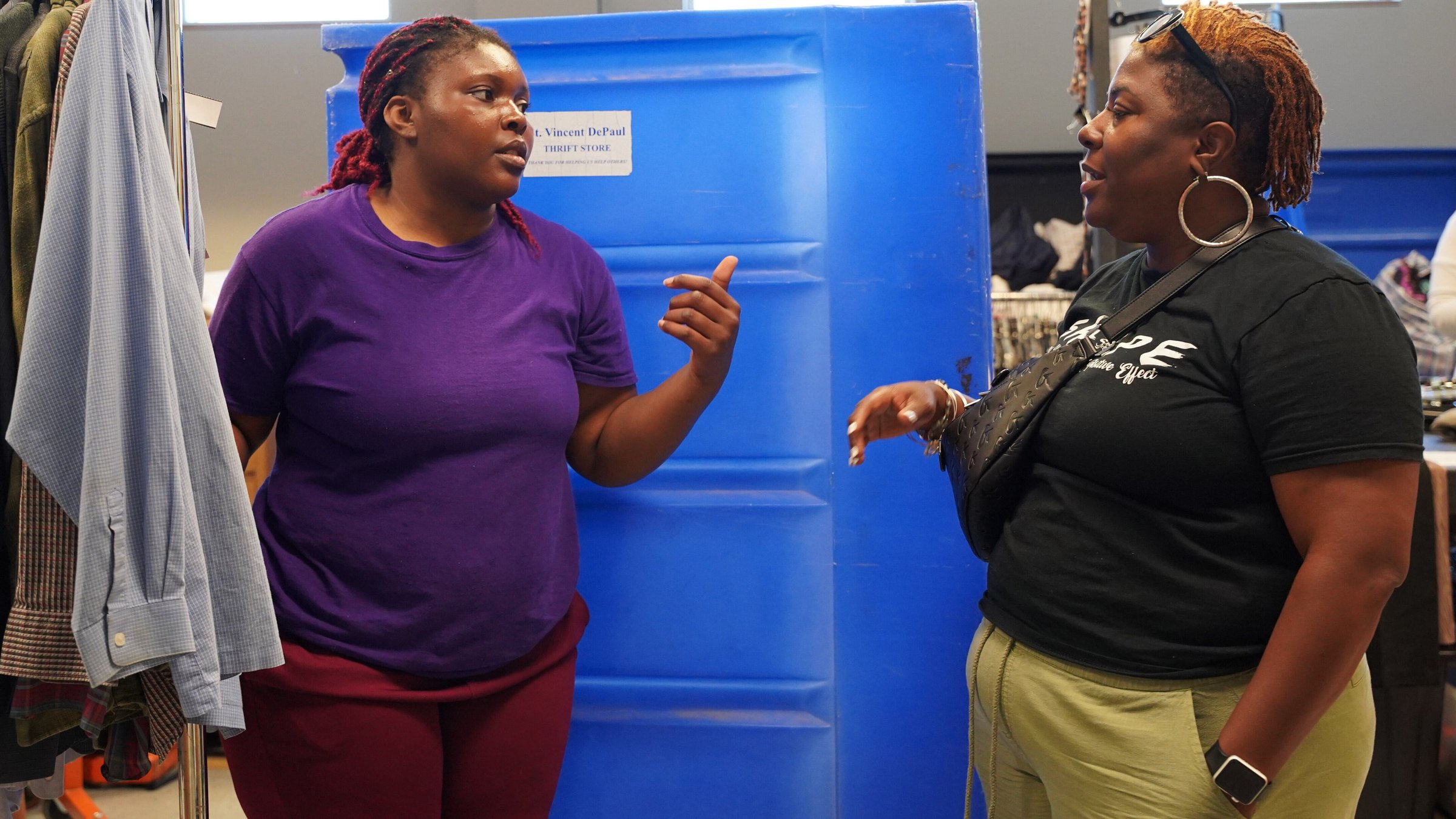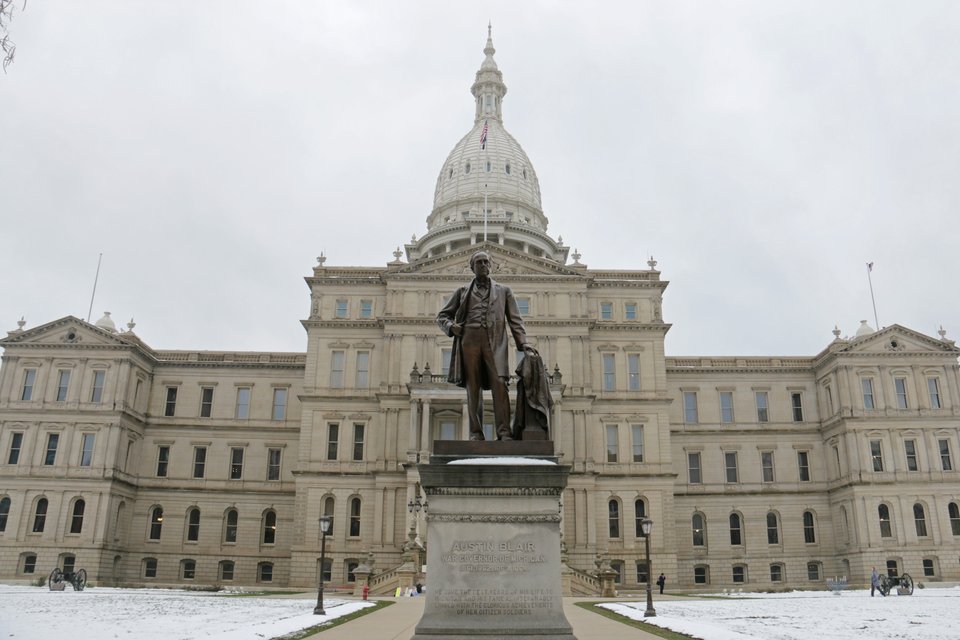Founded by Fr. Marko Djonovic in 2018, ministry helps men and women give back to society while gaining paycheck, confidence
DETROIT — The front entrance of Christ the King Catholic School in Detroit is ready for the start of the school year with a fresh coat of paint and clean landscaping, thanks to the efforts of the men and women of Better Way Detroit, an organized group of homeless men and women who give back to the city weekly.
Started in 2018 by Fr. Marko Djonovic, moderator of the Trinity Family of Parishes, the organization has grown into a force for good in the Detroit community, giving unhoused citizens a paid day's work that involves bettering the city's neighborhoods, cleaning up parks, schools and churches, and giving people a sense of dignity.
“It is not just about the money, even though they need the money," Fr. Djonovic told Detroit Catholic. "They appreciate the opportunity to do something good for the community. Oftentimes (when they are working), you hear a man say, ‘It feels good to give back.’ Or they have a smile on their face, or they receive compliments from the people in the neighborhood.”
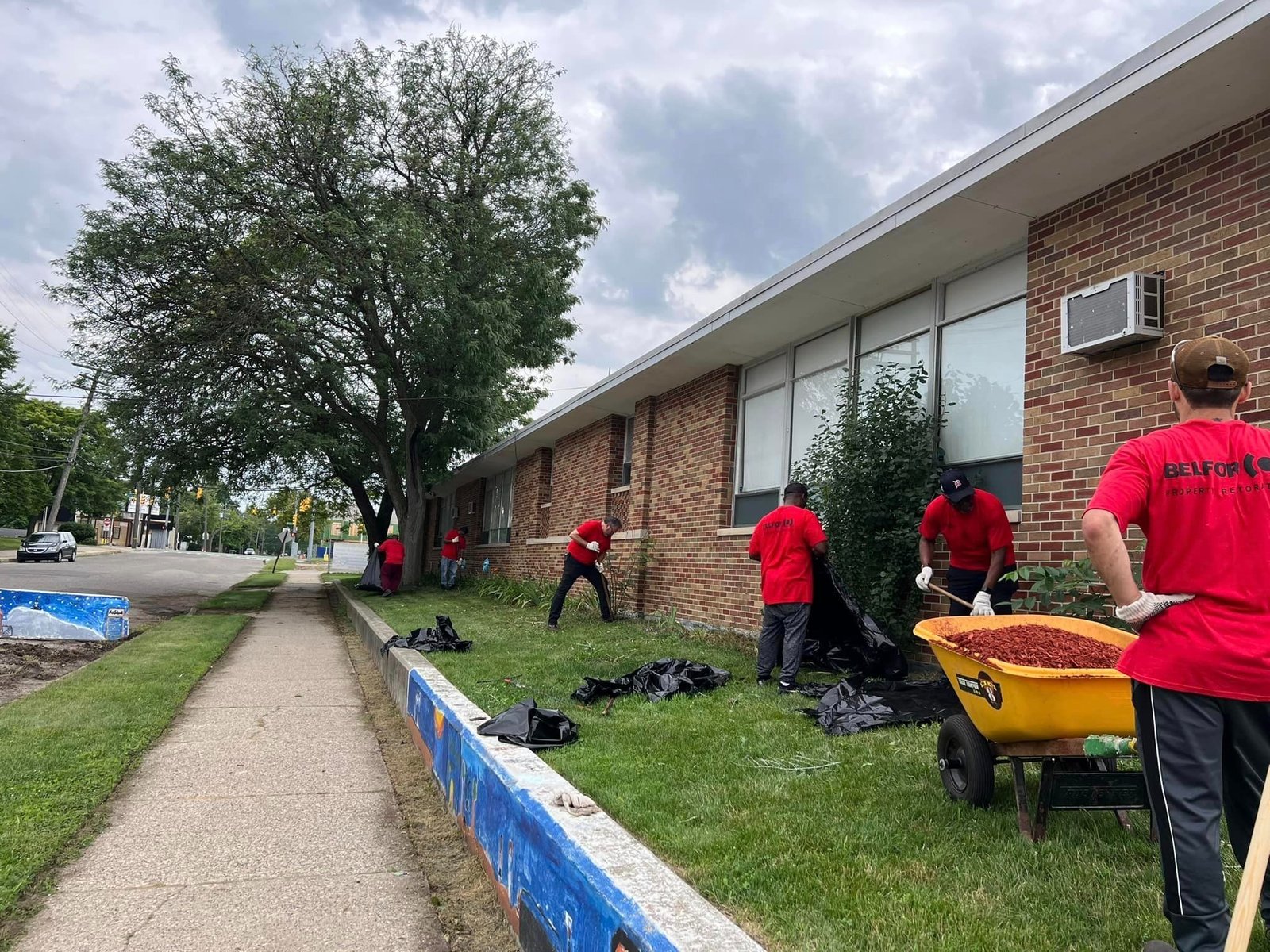
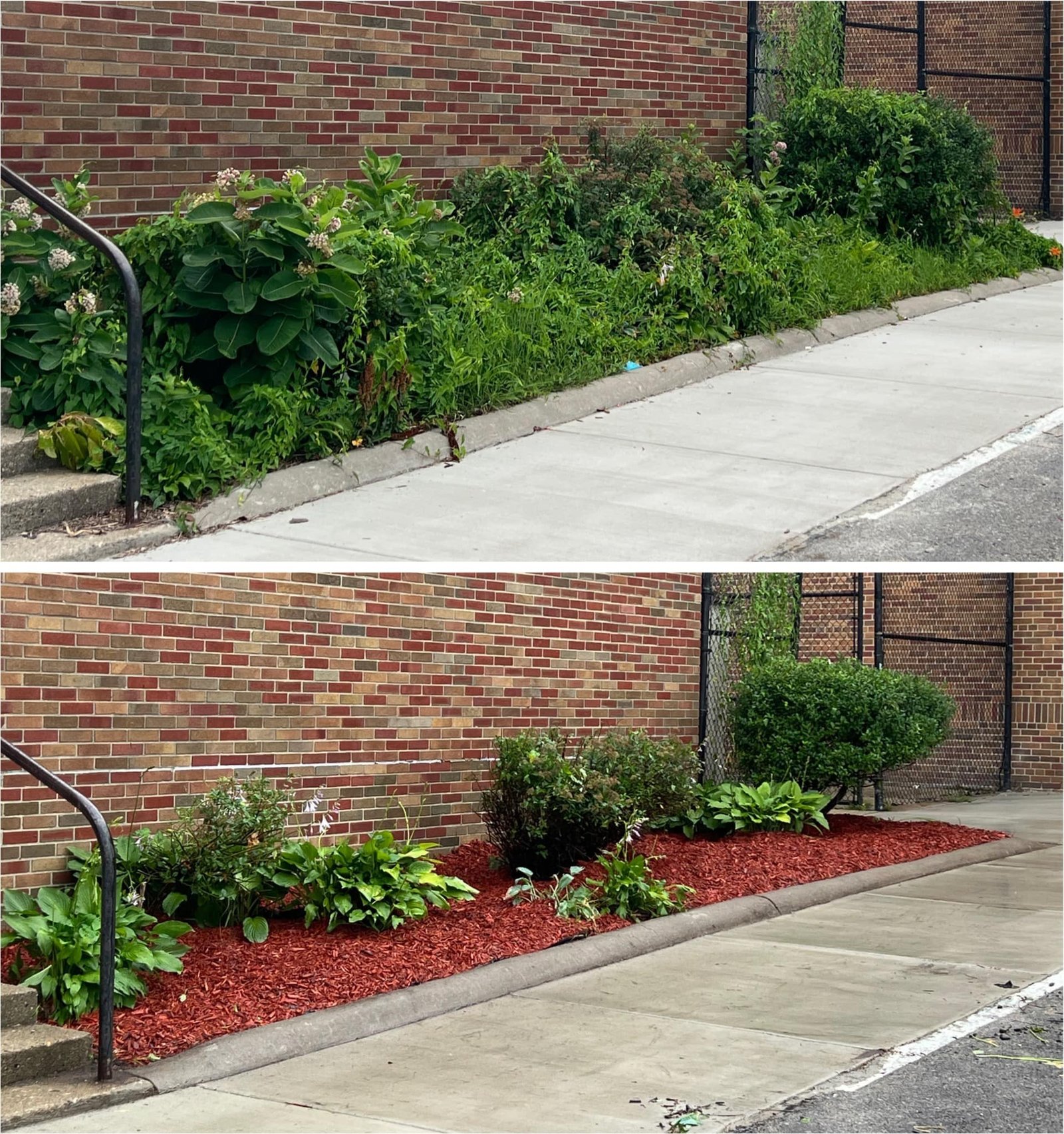
In Better Way's early years, Fr. Djonovic would recruit homeless men from the streets of Detroit, offering them wages for their work cleaning up parks and blighted neighborhoods one day a week, offering transportation in his SUV as well as lunch.
As the effort received media attention, Fr. Djonovic was able to raise funds and add days to the schedule — up until that point, the project's expenses had come out of his own pocket.
“It gave them an escape from the toxic homeless culture where drugs are readily available 24/7, and also they just love working outside. They like the opportunity to do some community work. They were treated with great respect by residents of the neighborhoods,” Fr. Djonovic said.
Within a year, Fr. Djonovic began working to connect some of the men with long-term employers and, despite a slowdown because of COVID-19, by early 2022, Better Way had expanded to accommodate work cohorts of women as well as men.
In December 2021, the ministry hired operations manager Quiane Bates, who began reaching out to employer coordinators at local homeless shelters such as COTS Detroit and Covenant House.
“When we first started, we were just getting guys from Third Street and picking them up,” Bates said. “While that was rewarding, it was not working for the longevity of our participants.”
Better Way works with cohorts of six at a time, alternating every four weeks between men and women. The groups work three to four days a week. Because the work is paid and taxed, each individual is required to have a valid ID and a Social Security number.
The work varies and still includes some cleanup and blight remediation, but the primary work is with the Society of St. Vincent de Paul, where cohorts tag and sort donated items to sell in thrift stores, and Detroit GoodFellows, where cohorts pack boxes of holiday gifts for children.
The operation is entirely funded by donations, and the long-term goal is to have two cohorts operating at once: one for men and one for women.
“This is one of those places where I wake up fulfilled, and I go to sleep fulfilled,” Bates added about her job. “I know I have a purpose, there’s no question about it.”
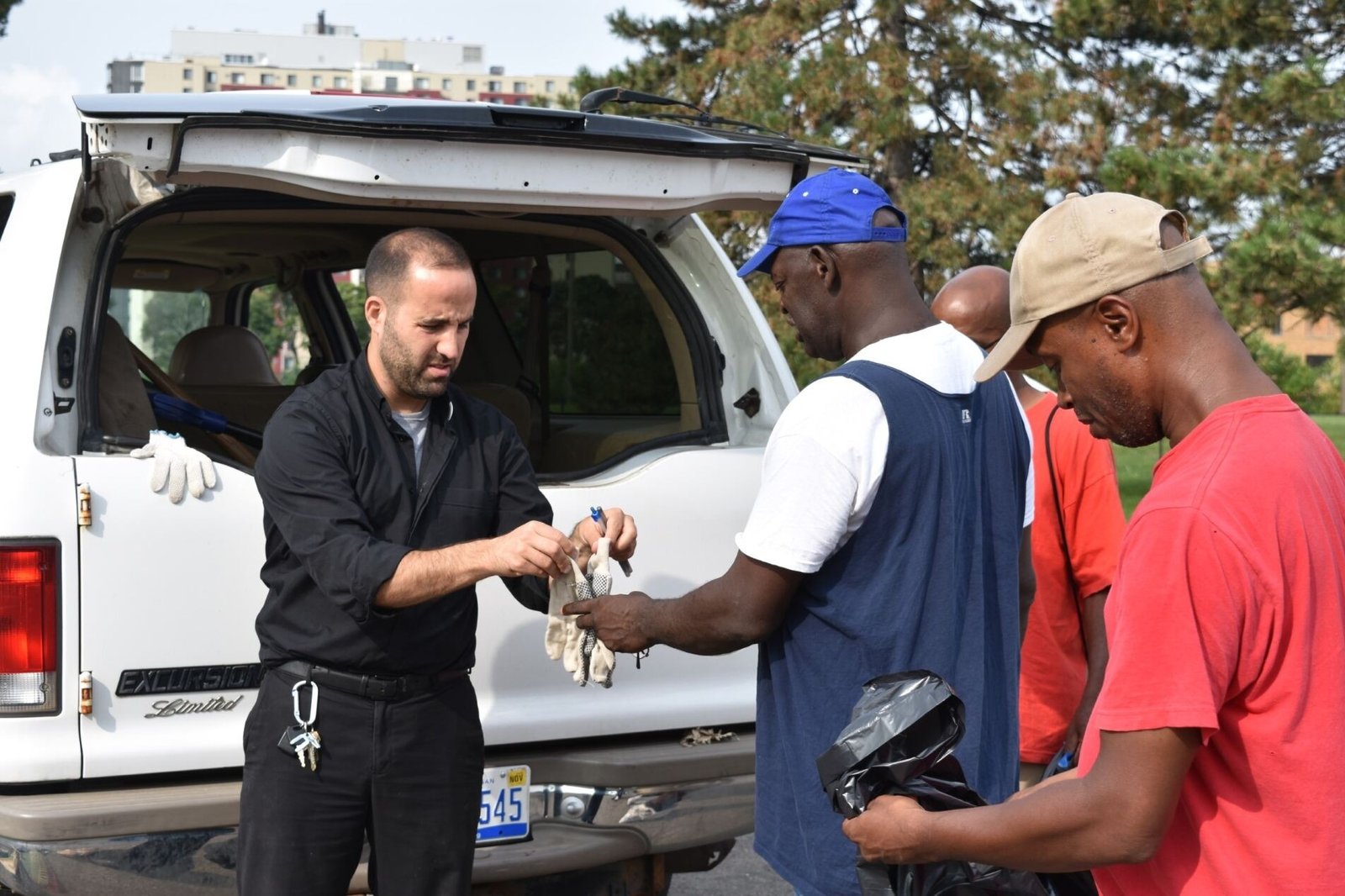
During the four weeks with a cohort, Bates takes time to get to know each individual and learn his or her story. This individualized approach allows Bates to match people with the next step: for some, it is enrolling in partnering GED programs; for others, it's Alcoholics Anonymous or other recovery programs; many participants are fresh out of jail, and haven't participated in the workforce in decades.
Aubrianna Johnson, 21, said Better Way Detroit is preparing her to enter the workforce when she leaves Covenant House.
“This is a great program to teach young people how to come to work on time and how to work together as a team and how to keep things flowing — everyone has a specific job — so if you were to work in an assembly line or another store you would know what to do,” Johnson told Detroit Catholic.
Johnson hopes to find employment at one of the St. Vincent de Paul stores or something similar, where she hopes to put her new skills to use.
“It has definitely taught me about work ethic and teamwork, and so I definitely learned to work better with other people here,” Johnson said. "Work doesn't have to be like work exactly; we’ve made it like a family. We care about each other, and they actually care about their employees.”
Soon after moving into COTS Detroit in March, Samellia Memel, 41, connected with Better Way Detroit. Bates — or “Ms. Q,” as the participants call her — walked Memel through the process of finding a new job, even taking her and another woman to a job fair at MGM Grand Casino. Memel got a job as a security officer at the casino that day.
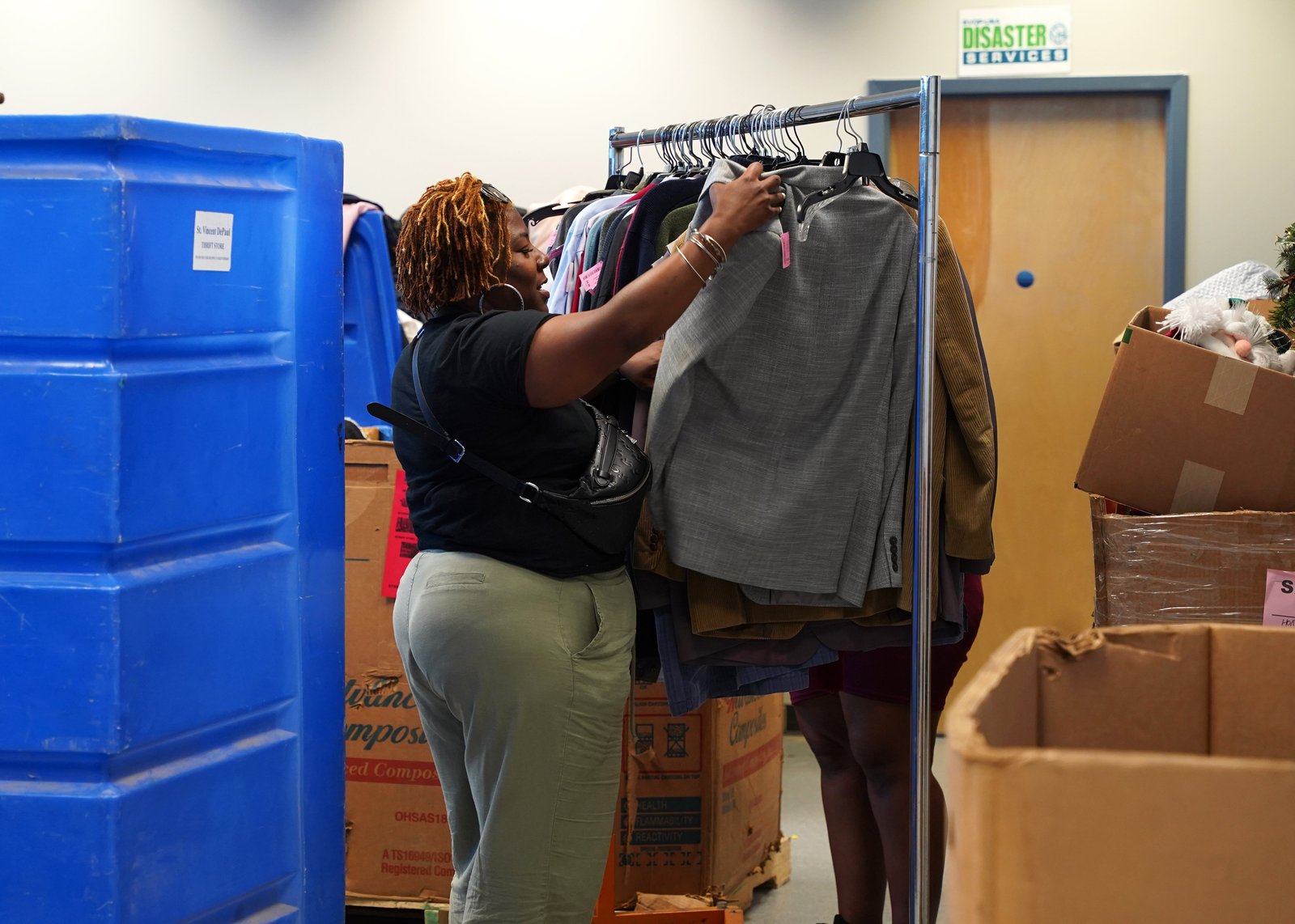
“I am moving forward,” Memel said. “I am getting a townhome hopefully by the end of this month. Sometimes we get trapped in this whole, ‘Woe is me, I am down’ (mentality), but you still have to keep going and keep pushing forward.
"Better Way Detroit gave me some help with that," Memel continued. "They don’t look at it as if you are down and out. You still have to make it for your kids, for your little family.”
Since the beginning of 2022, Bates has worked with 170 participants in Better Way Detroit. Bates said 40 percent of the participants have been employed, and the ministry hope to double that this year.
“Better Way is more spiritual because everything is Christian,” Memel said. “Working with Ms. Q helped to get me closer to God and have an open forum to talk about God on the job site, with daily affirmations, encouragement and support.”
Every day during lunch, the cohort takes time for ministry and prayer. A standard practice is having participants write their worries and struggles on "Post-It" notes and add them to a large wooden cross in the break room.
“They come in here heavy, and I think they don’t know what to do with the heavy stuff,” Bates said. “Some people have made bad choices, and some were born into it. They've got all of this stuff they are carrying, and they don’t know they are carrying it because they have been carrying it for so long it has become part of them.
“What I try to do is to convince people to let it go, to put it down because God is going to carry that for you — we don’t have to carry that," Bates continued. "My goal is to have them leave it there at the cross, trust that (Jesus) has got you."
"His goal is for you to be great so he can get the glory," Bates concluded. "The better you are, the better you do, the more glory he gets, so why would he want you to fail?"
Copy Permalink
Social justice


